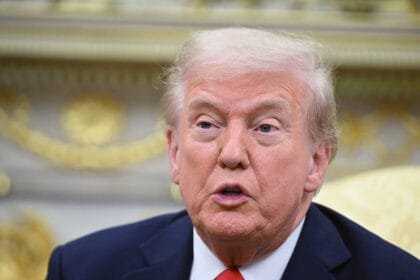Addis Ababa, Ethiopia – The Ethiopian government is in advanced talks with China to convert part of its $5.38 billion debt into Chinese yuan. This move aims to reduce debt service costs and strengthen bilateral economic ties, according to official statements by the governor of the National Bank of Ethiopia.
Talks in Beijing
In statements to Bloomberg, the Governor of the National Bank of Ethiopia, Eyob Tecaliene, revealed that his country had submitted an official request to China in this regard. This came during recent meetings held in Beijing with the People’s Bank of China and the Export-Import Bank of China.
Speaking to reporters in Washington on the sidelines of the International Monetary Fund and World Bank meetings, Tekalin said: “China is a major partner for us, and with growing trade and investment ties between the two countries, it makes sense to explore the possibility of currency swaps, including partial debt conversion.”
Debt-ridden financial background
Ethiopia, which defaulted on its external debt obligations in 2023, is facing significant financial pressure. Its external debt is estimated at approximately $15 billion, and negotiations are underway to restructure it with the assistance of the Paris Club and official creditors, including China and France.
The Ethiopian government aims to complete bilateral agreements with official creditors by the end of 2025, while it hopes to conclude talks with commercial creditors, primarily Eurobond holders, by March 2026.
IMF: Currency swaps could ease pressure
In the same context, Abebe Selassie, Director of the International Monetary Fund for Africa, considered such swaps an effective tool for reducing the financial burdens of countries with significant exposure to Chinese debt.
Selassie noted that switching to the yuan could enable Ethiopia to achieve significant savings over the repayment period and would also contribute to improved financing terms.
“Currency swaps like this can provide real financial relief, especially for countries seeking to expand their options outside the dollar-based system,” he said.
Regional shift away from the dollar
Ethiopia’s move comes amid a gradual regional shift in some African countries toward the Chinese yuan. This comes as the country seeks to diversify its funding sources and reduce its reliance on the US dollar. Kenya has also begun similar steps to process some of its imports from China in yuan, to ease pressure on its foreign exchange reserves.
Challenges and potential repercussions
Although the agreement with China has not yet been finalized, the move raises questions in economic circles about its implications for Ethiopia’s relations with international financial institutions and Western creditors, as well as its geopolitical repercussions in light of the rivalry between Beijing and Washington in Africa.
Although the agreement with China has not yet been finalized, the move raises questions in economic circles about its implications for Ethiopia’s relations with international financial institutions and Western creditors, as well as its geopolitical repercussions in light of the rivalry between Beijing and Washington in Africa.
















